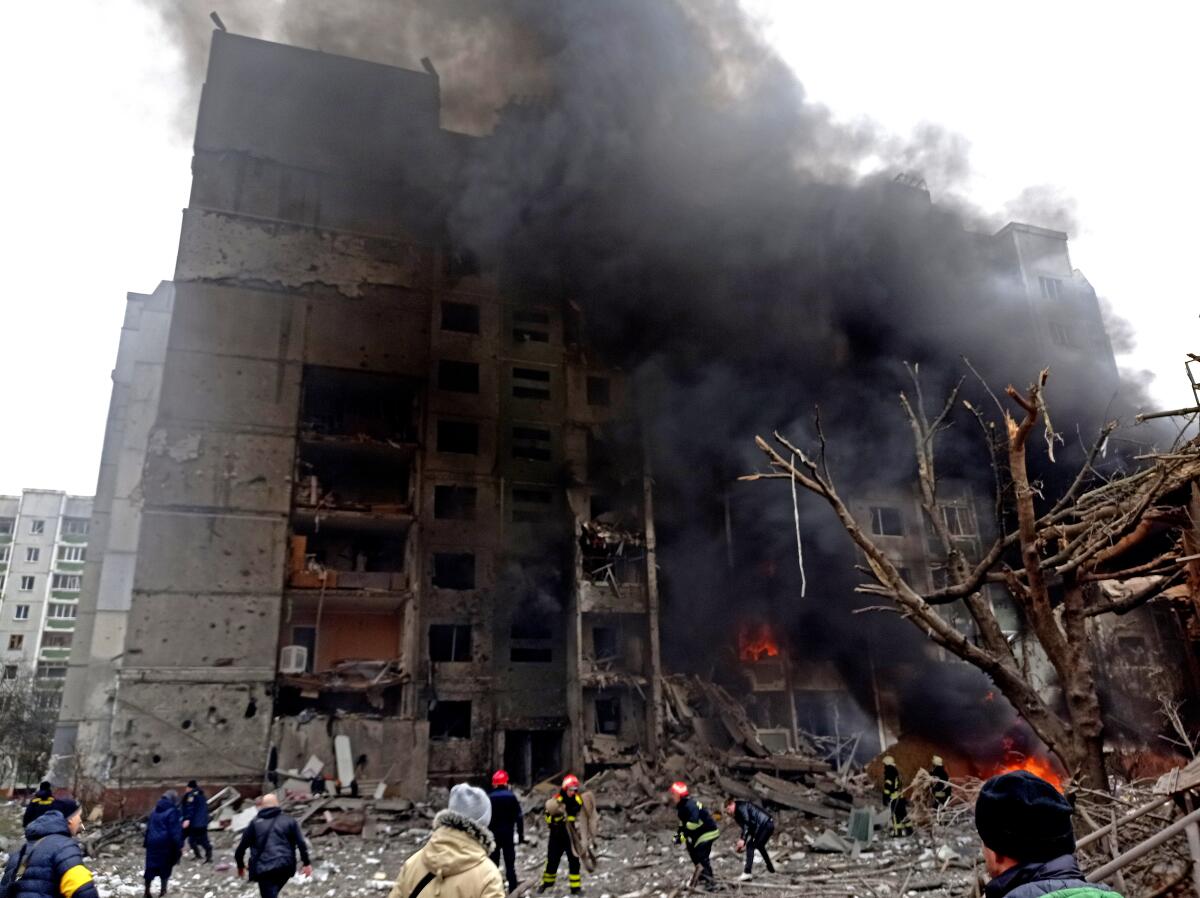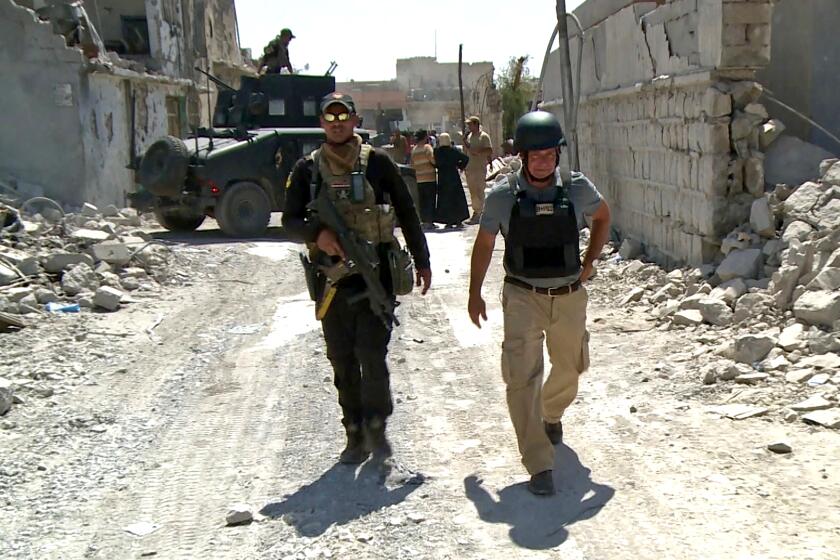Editorial: U.S. must tread carefully as it increases sanctions on Russia for Ukraine invasion

- Share via
A little more than a week into Vladimir Putin’s unprovoked and brutal invasion of Ukraine, Russia is isolated at the United Nations, hobbled by unprecedented economic sanctions and stalled in its conquest by the inspiring resistance of Ukrainians.
Yet Russia retains a substantial military advantage and is pressing on with its “special military operation,” despite the cost in innocent human lives and the dislocation of a million refugees. On Thursday, Putin told French President Emmanuel Macron that Russia would achieve its goals in Ukraine “no matter what.”
Ukraine’s vulnerability has prompted calls — and not only from Ukrainians — for military intervention by the United States and its NATO allies to arrest the Russian onslaught. Andriy Yermak, a member of Ukrainian President Volodymyr Zelensky’s administration, wrote in the New York Times this week to plead for more assistance, including the enforcement of a no-fly zone over Ukraine.
To its credit, the Biden administration continues to ratchet up pressure on Russia while proposing more aid for Ukraine. President Biden reportedly will ask Congress for $10 billion in new aid to Ukraine over and above the $1.4 billion already provided.
When newspaper columnists and TV correspondents express shock at European conflict, they reveal a damning belief that war is acceptable elsewhere.
About 20 countries, including members of the North Atlantic Treaty Organization, are sending weapons into Ukraine to fight the Russian military.
On Thursday, Biden also announced new sanctions on more than a dozen Russian oligarchs and their families. Some members of Congress are also suggesting that the U.S. ban oil and gas imports from Russia, an idea the administration hasn’t embraced but should consider.
It is possible that stronger sanctions and an infusion of military hardware will help the Ukrainians to continue their resistance. Faced with the prospect of a long and costly occupation of Ukraine, Putin might relent in his aggression, agree to a significant cease-fire and ultimately withdraw his forces. Stronger sanctions might also make it harder for Russia to menace other nations, including NATO members.
The proposal for a no-fly zone, however, is one that Biden and his advisors are right to reject. The reason is simple: Such a zone would be meaningful only if the U.S. and its allies were willing to enforce it by shooting down aircraft that violated it.
Targeting a Russian plane over Ukraine would involve direct hostilities between the U.S. and Russia, as would the deployment of American troops to assist in the defense of Ukraine, another option Biden has ruled out, including in his State of the Union address Tuesday.
If it were a NATO member, Ukraine would benefit from Article 5 of the North Atlantic Treaty, which says that an armed attack on one alliance member will be considered an attack against all. Biden cited that distinction in his speech when he said: “Our forces are not going to Europe to fight in Ukraine but to defend our NATO allies in the event that Putin decides to keep moving west.”
Yet it isn’t just because of NATO that Biden is unwilling to deploy U.S. forces in Ukraine or approve a no-fly zone against Russia. A direct military confrontation between the two nuclear superpowers would be terribly, existentially dangerous, even if Putin hadn’t announced recently that he was directing Russian nuclear forces to be placed on “special combat readiness.”
It’s understandable that Ukrainians would want the U.S. and its allies to do more to help repel the Russian invaders. But a confrontation between NATO and Russia could increase the possibility of a catastrophic conflict that would be global — and unimaginably deadly — in its consequences.
More to Read
A cure for the common opinion
Get thought-provoking perspectives with our weekly newsletter.
You may occasionally receive promotional content from the Los Angeles Times.











